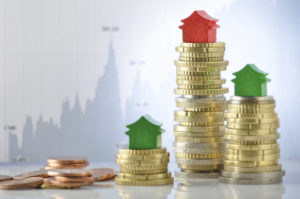
We keep hearing how owning an investment property is blowing out the house prices in our major cities.
Then we are told how the tax system is fuelling this demand.
When you own a property and rent it out, the rental income is of course taxable.
But you can then deduct most of the expenses from that subsequent income.
When your expenses exceed your rental income, and you make a loss, your property is now classed as negatively geared.
And when your income exceeds your expenses, which leads to a profit, then you are now positively geared.
We advise our clients that a mixture of both positive and negative geared properties seems to be the best outcome.
It is believed that the majority of the 1.7 million property investors in Australia have negative geared properties.
The largest expense you will have to deal with on this investment is of course the mortgage.
The Australian tax office allows you to deduct the interest you pay on the mortgage per se.
You then add up all the expenses you incur on the rental property like water rates, land rates,real estate agent fee`s, advertising for the initial tenants,insurance, pest control, property maintenance and deprecation etc on the building if its built after 1985.
This means you have made a loss on the property and our great tax laws allow us to now offset this loss against your combined income for that tax year.
This will result will often lead to a decent refund of your tax.
Always keep meticulous records of your rental returns as well as expenses.
We advise our clients to keep records for at least 7 years when possible.
In regards to property maintenance costs, which are allowable for tax purposes, please remember that the tax office has been known to sometimes query these type of costs when they occur within the first 12 months of the purchase.
When you sell the property you are now subject to capital gains tax on the profit.
If you own the property for more than 12 months you now become eligible for a 50% discount on this tax.
Or if the property or asset is sold during probate for instance,and its value rose since the person died, there is usually Capital Gains Tax to pay which should be minor anyway.
If you’ve lived in your home for the whole time you’ve owned it, and have not rented it out either completely or to a lodger and the land is smaller than two hectares, you’ll get a full exemption on CGT when you sell.
Many people make money using negative gearing by utilising the losses on the rental income and the profit that they will inevitable make when they sell their property.
Not many people realise that from January 1 2018 the capital gains tax discount will increase to 60% for investors who invest in houses that qualify as “affordable housing “ to low to moderate income tenants.
And the rent is also charged at a discount rate lower than the standard private rental market rate.
But do not forget that the affordable housing must also be managed by a registered community housing provider and that you have to hold the investment for a minimum of at least 3 years.
Principle or capital repayments are not deductible but the interest component directly related to the investment property is tax deductible.
Don’t forget you can also claim a deduction for interest on loans when the funds are used for renovations,depreciation on furniture, ongoing maintenance etc.
It is not uncommon for financial institutions to “redraw” facilities against existing loans which investors then often use to purchase properties.
This “redraw” might have been used for income producing purposes or even non income producing purposes.
And sometimes a mixture of both.
But if you use the mixture we mentioned above , the interest on the loan must be apportioned between the deductible and non deductible components and the split must be clearly reflecting the amounts borrowed for rental and private purposes.
Having adequate insurance on your investment property is obviously a given.
You will need decent building insurance to provide cover for damage to the actual structure from events like fires,storms etc.
Or even from damaged incurred from the tenants.
Often this cover will be required by the lender anyway.
Another thing to think about is rent default as well as rental damage and liability insurance.
This implies we should have landlord insurance to protect us.
Insurers will look at the postcode to ascertain how risky the area is for rent defaults and damage by tenants.
The cost is of course tax deductible .
Bookings are still available for 2017.Book HERE
Wednesday 22nd of NovemberPROPERTY MARKET & LENDING CHANGES
Held in Club Burwood 6.30 pm Registration for 7.00 pm Start
96 Shaftesbury Road, Burwood NSW
